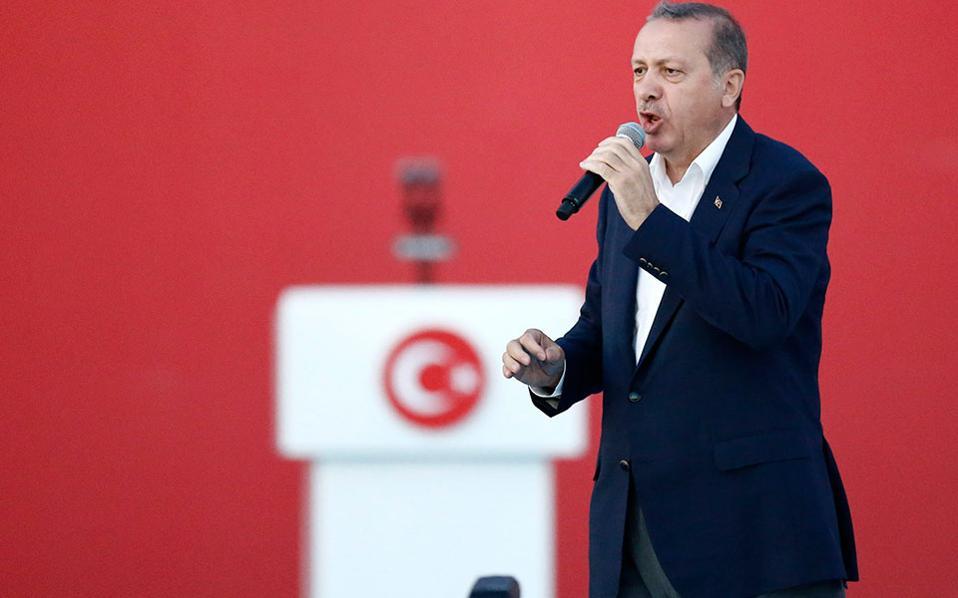Turkey eyes undoing of international treaties

The 1913 Treaty of London, the 1923 Treaty of Lausanne, the Convention between Italy and Turkey signed in 1932, and the 1947 Paris Peace Treaty leave no room to question or misinterpret Greece’s sovereign rights in the Aegean. Athens is right to invoke these pacts against Ankara’s systematic claims which appear to be part of a national strategy after 1974 and following the devastating coup by the military dictatorship on Cyprus. Turkey’s efforts have not met with much success as Greek diplomacy has been quite effective in defending the country’s interests and territorial integrity.
The effective defense of sovereign rights on the basis of international law was possible up until recently as international agreements enjoyed a meaningful degree of respect, but now volatility across Greece’s wider region is on the rise and Turkey seems determined to unmake treaties which it itself signed in the past, starting with the Lausanne Treaty, flouting international law. Some hopes emerged for the de-escalation of tension when Turkish Prime Minister Binali Yildirim called his Greek counterpart Alexis Tsipras to convey his condolences after the death of the Greek fighter jet pilot. However, these were quickly dashed by fresh incidents in the Aegean and, more importantly, the Turkish Foreign Ministry statement earlier this week saying that Imia is Turkish territory.
The impression that Ankara is trying to set new precedents and faits accomplis in Greek-Turkish ties is not just a Greek fixation.
Everything seems to point to Turkey escalating its provocations on the basis of a plan (part of this is the growing wave of refugees and migrants crossing the border into Greece’s northeastern Evros region, considering that Ankara has shown it can control flows if it wants to).
The objective is three-pronged: first, that the international community will get used to the idea of joint sovereignty in the Aegean; second, to impose such a feeling of constant fear on the Greek side that it ends up questioning its own sovereignty over so-called “gray zones” (going as far as to bar the access of Greek citizens to these areas) to avoid provoking the other side; and, third, to wear out the Greek armed forces by forcing them to be on constant alert.
Greece’s political class and wise-headed observers recommend caution and self-restraint so that Athens does not increase the chances of an incident or armed conflict. But if Turkey really intends to create a serious incident, can Greece really rely on international treaties and the verbal support of its European Union peers? And can it be certain that the United States, under the administration of President Donald Trump, will step in if necessary? Things are at a critical point and we will have to wait and see what will follow the snap vote called by President Recep Tayyip Erdogan (most likely prompted by Turkey’s economic woes).
In the meantime, Greece needs to raise awareness and lodge a barrage of complaints with all international organizations and key capitals, while taking steps to consolidate the country’s defense.





